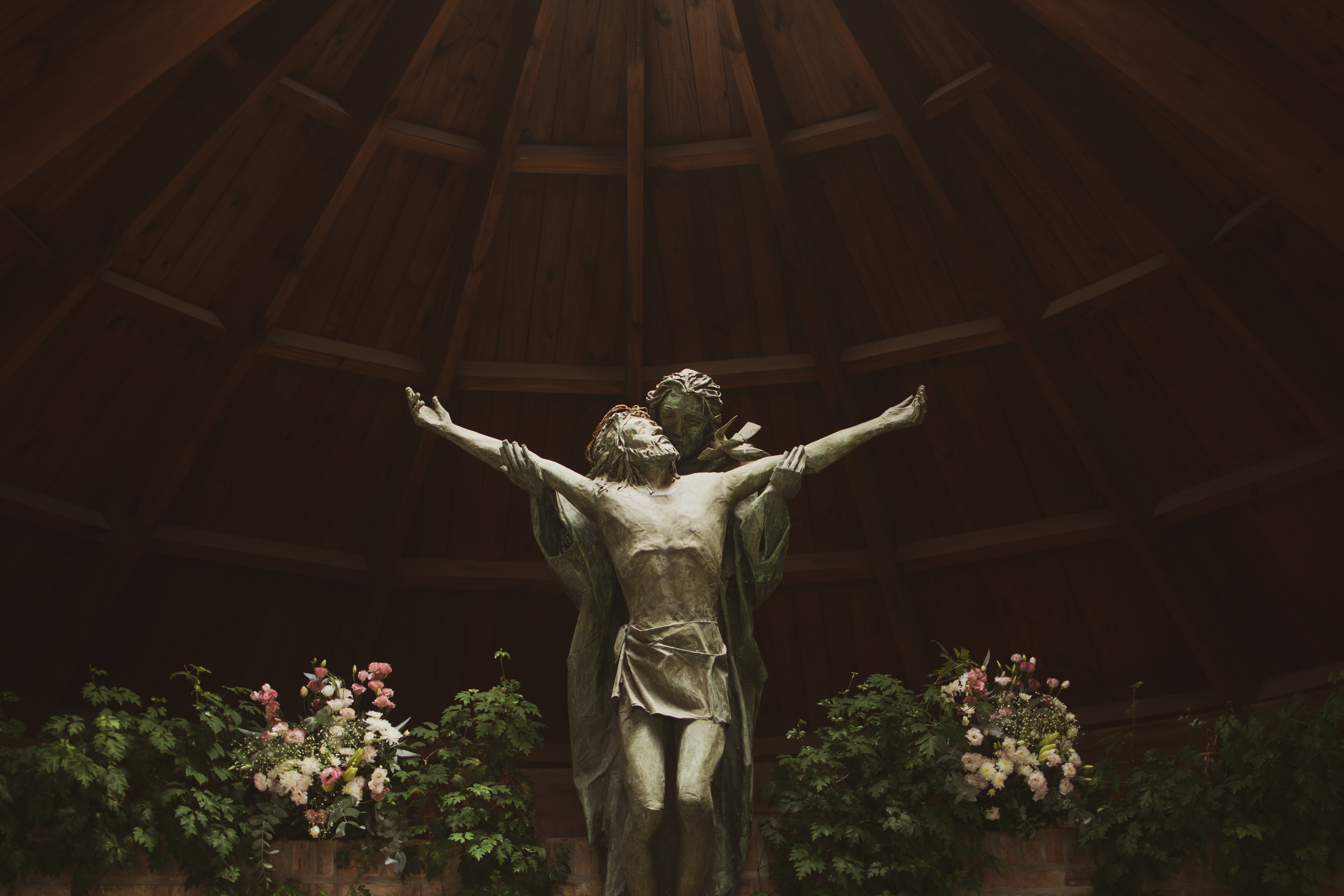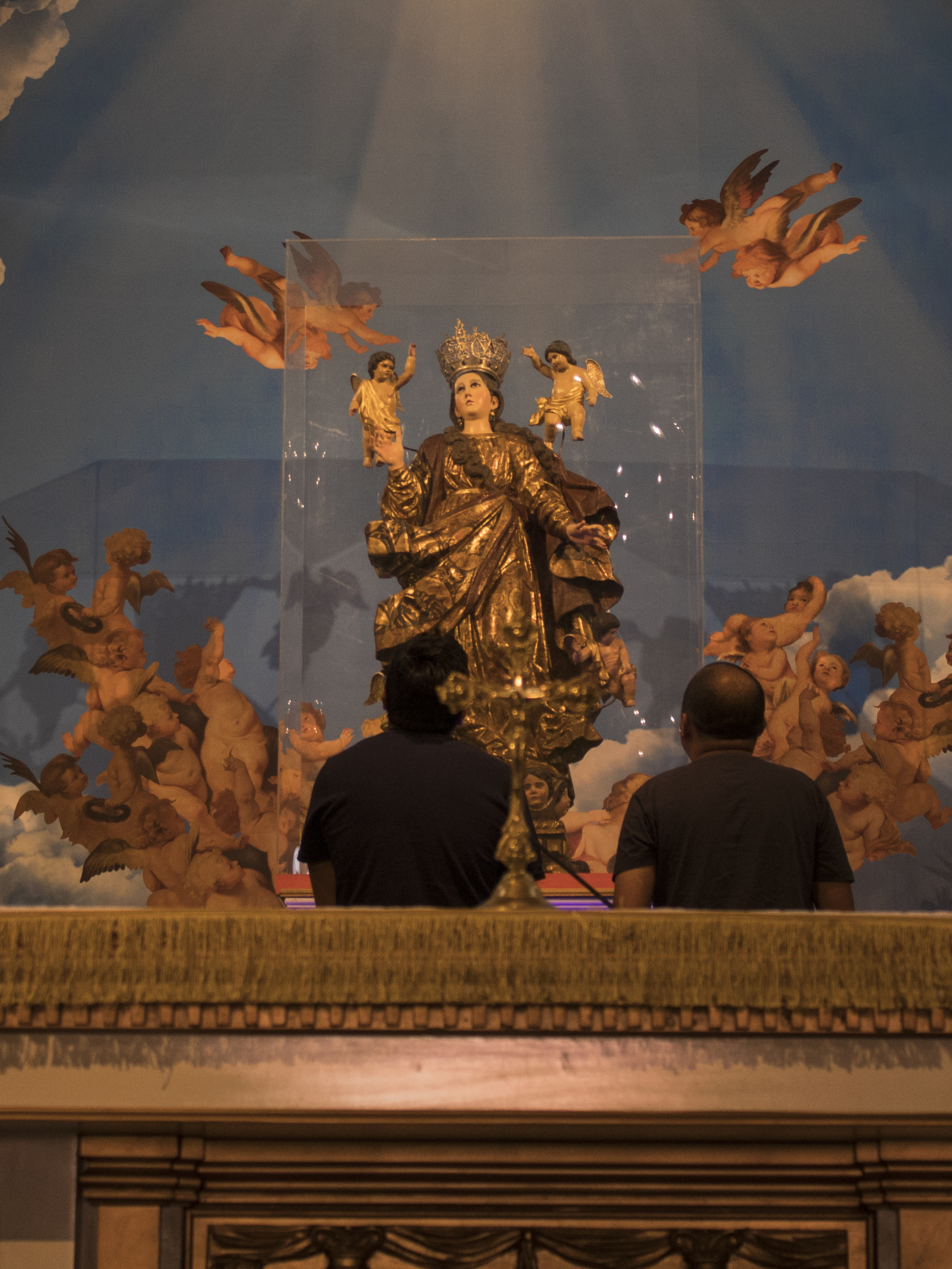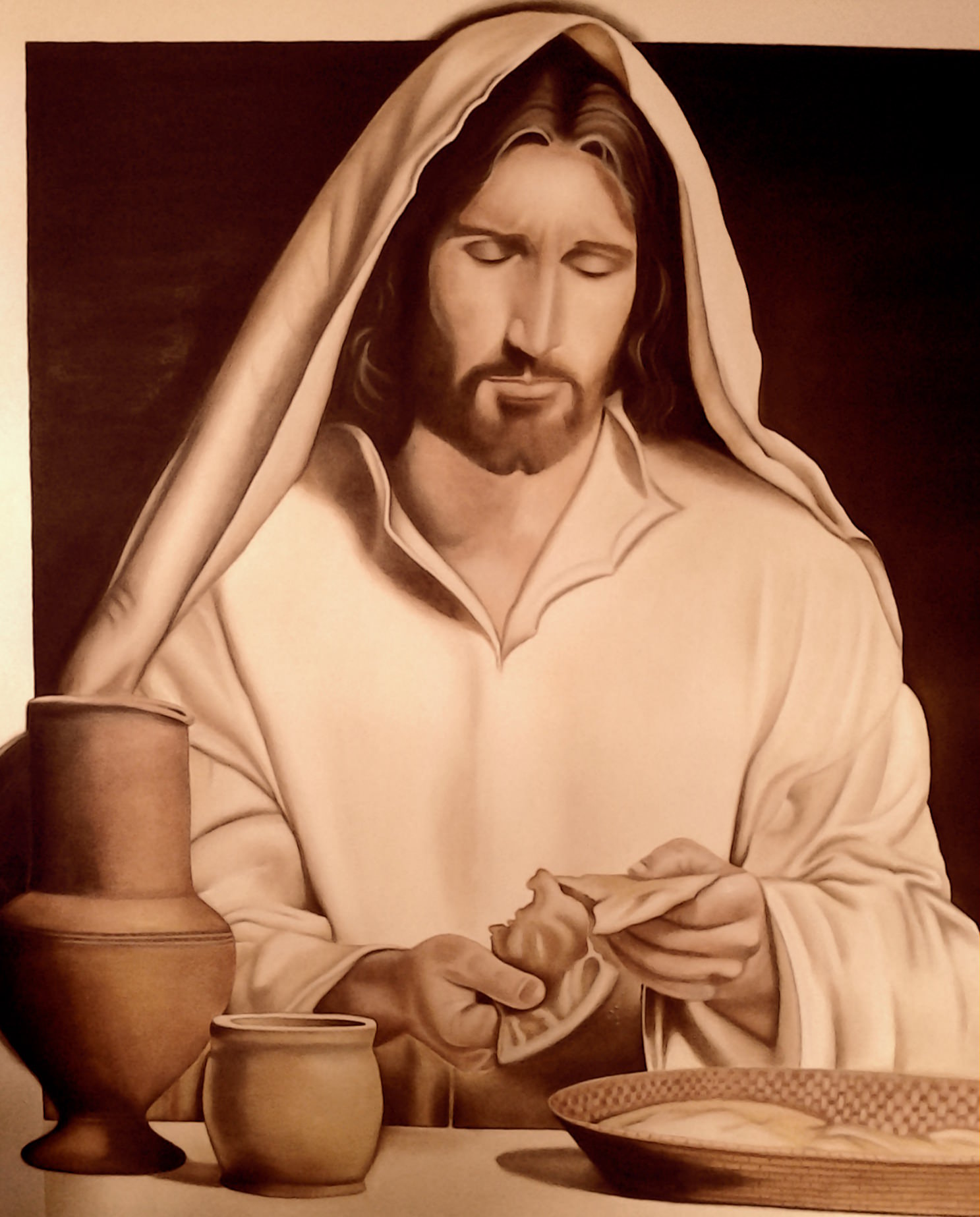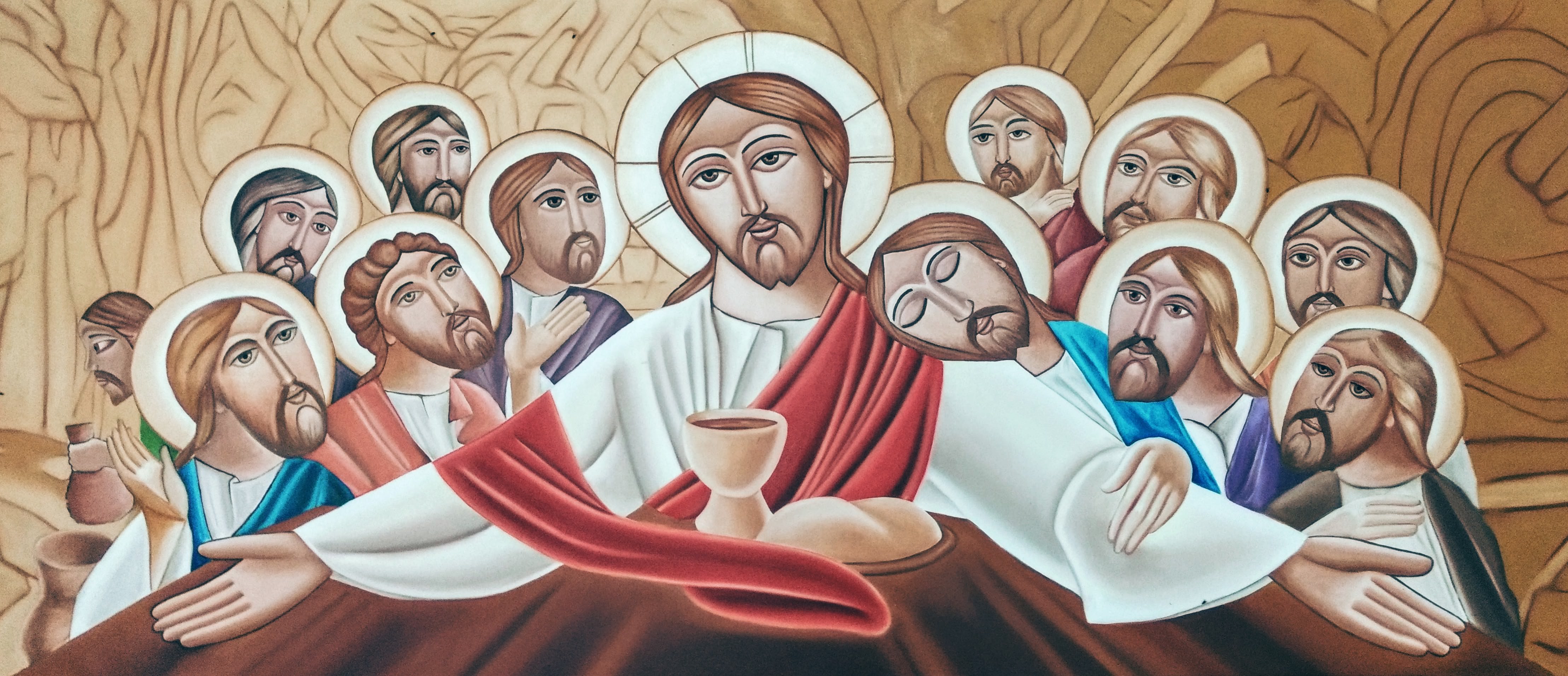We might be tempted to take this Gospel lightly, as it is so familiar. “Yep,” we might think, “I already know this. The Lord’s Prayer comes from the Gospel.” It might also seem obvious that Jesus gave us this as a kind of “form” of prayer that we can imitate. True enough.
But even more profoundly, we have an insight here into Jesus’ very own prayer to His Father, a glimpse into the heart of Christ as it opens to the Father, and an invitation into the very prayer of Jesus. What does this reveal?
We know that Jesus is the Son of God, and that he is uniquely positioned to call God “Father.” There is some discussion that the Aramaic word “Abba” that Jesus uses means something more like “Daddy,” which is a more familiar and familial term than “Father,” that carries a stronger note of respect and distance than warmth and intimacy. But even more than this familial note, beyond the closeness and love that “Abba” implies, there is also an implication of authority that commands trustful obedience.
In this line of thought, which can be a fruitful reflection for us, only a child can use this term. Anyone can say, “Yes, sir!” but only a child can say, “Yes, Abba.” Any child can say “Father,” but only an obedient one says, “Abba, Father,” as Jesus did. This is profound heart language. It is only used three times in the New Testament (take a moment to read Mark 14:35-36, Romans 8:12-15, Galatians 4:1-11!), and each instance makes more sense if we read it with this understanding of a confident child’s loving obedience.
For Old Testament context, we might read Genesis 22, where Isaac calls out to Abraham in a similar way. Both Jesus and Isaac are beloved, only sons, and obedient. Both are facing a sacrificial death. Both have climbed a mountain to prepare. Both carry the wood for that sacrifice. Isaac doesn’t speak Aramaic so he doesn’t use the specific word “Abba”, but he does call out to Abraham with the same meaning when he realizes there is no animal for sacrifice. “Father!” (Gen 22:7) he says, but then continues forward in loving trust and obedience.
As we pray the Our Father with attention and intention, we learn to enter into the prayer of Christ before His Father and our Father, His God and our God, and gradually our small hearts expand with the gushing sentiments of love and trust that stream from Jesus’ own Heart.
Podríamos estar tentados a tomar este Evangelio a la ligera, ya que es tan familiar. “Sí”, podríamos pensar, “esto ya me lo sé. El Padrenuestro viene del Evangelio”. También puede parecer obvio que Jesús nos dio esto como una “forma” de oración que podemos imitar, lo cual es cierto.
Pero aún más profundamente, aquí tenemos una idea de la propia oración de Jesús a Su Padre, un vistazo al corazón de Cristo que se abre al Padre, y una invitación a la oración misma de Jesús. ¿Qué nos revela esto?
Sabemos que Jesús es el Hijo de Dios y que está en una posición única para llamar a Dios “Padre”. Existe cierta discusión de que la palabra aramea “Abba” que Jesús utiliza significa algo como “papi”, que es un término más familiar que “padre” y lleva un tono más fuerte de respeto y distancia que de calidez e intimidad. Pero más allá de esta nota sobre la familia, más allá de la cercanía y el amor que implica “Abba”, también hay una implicación de autoridad que exige la obediencia llena de confianza.
En esta línea de pensamiento, que puede ser una reflexión fructífera para nosotros, sólo un niño puede utilizar este término. Cualquiera puede decir: “¡Sí, señor!” pero sólo un niño puede decir: “Sí, Abba”. Cualquier hijo puede decir “Padre”, pero sólo el obediente dice, “Abba, Padre”, como lo hizo Jesús. Este es un lenguaje profundo del corazón. Solo se utiliza tres veces en el Nuevo Testamento (te invito a tomar un momento para leer Marcos 14,35-36, Romanos 8,12-15 y Gálatas 4,1-11), y cada instancia tiene más sentido si la leemos con esta comprensión de la obediencia amorosa de un niño confiado.
Para el contexto del Antiguo Testamento, podríamos leer Génesis 22, donde Isaac llama a Abraham de manera similar. Tanto Jesús como Isaac son amados, hijos únicos y obedientes. Ambos se enfrentan a una muerte sacrificial. Ambos han escalado una montaña para prepararse. Ambos llevan la leña para el sacrificio. Isaac no habla arameo, por lo que no utiliza la palabra “Abba” específicamente, pero llama a Abraham con el mismo significado cuando se da cuenta de que no hay ningún animal para el sacrificio. “¡Padre!” (Gén 22, 7), dice, pero luego sigue adelante en amorosa confianza y obediencia.
Al rezar el Padrenuestro con atención e intencionalmente, aprendemos a entrar en la oración de Cristo ante Su Padre y nuestro Padre, Su Dios y nuestro Dios, y poco a poco nuestros corazones pequeños se expanden con los sentimientos efusivos de amor y confianza que brotan del propio Corazón de Jesús.
 Kathryn Mulderink, MA, is married to Robert, Station Manager for Holy Family Radio. Together they have seven children (including Father Rob), and seven grandchildren. She is President of the local community of Secular Discalced Carmelites and has published five books and many articles. Over the last 30 years, she has worked as a teacher, headmistress, catechist, Pastoral Associate, and DRE, and as a writer and voice talent for Catholic Radio. Currently, she serves the Church by writing and speaking, and by collaborating with various parishes and to lead others to encounter Christ and engage their faith. Her website is www.KathrynTherese.com
Kathryn Mulderink, MA, is married to Robert, Station Manager for Holy Family Radio. Together they have seven children (including Father Rob), and seven grandchildren. She is President of the local community of Secular Discalced Carmelites and has published five books and many articles. Over the last 30 years, she has worked as a teacher, headmistress, catechist, Pastoral Associate, and DRE, and as a writer and voice talent for Catholic Radio. Currently, she serves the Church by writing and speaking, and by collaborating with various parishes and to lead others to encounter Christ and engage their faith. Her website is www.KathrynTherese.com
Feature Image Credit: Agencia Eremo, cathopic.com/photo/14089-santisima-trinidad











